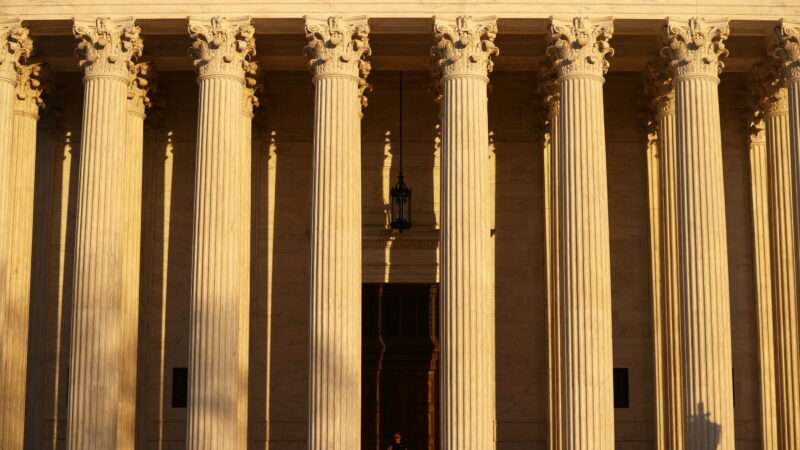
The Fourth Amendment requires law enforcement officials to get a warrant before searching a suspect’s person or property. Alas, the courts have concocted a number of dubious exceptions to that constitutional safeguard.
The California Court of Appeal, 1st Appellate Division, offers a recent case in point. In California v. Lange (2019), that court ruled that a police offer may enter a suspect’s home without a warrant if the officer is in pursuit of the suspect and has probable cause to believe that the suspect has committed a misdemeanor.
The court’s ruling invoked a legal doctrine known as the “hot pursuit” exception. In short, it says that if a police officer is chasing a suspected violent felon—such as a murderer or a terrorist—the officer need not stop to get a warrant before following that suspect into the suspect’s home.
The California court took the “hot pursuit” exception and ran it off the constitutional cliff. Arthur Gregory Lange was not suspected of anything that even remotely resembled a violent or dangerous crime. Lange came to the attention of a California highway patrol officer because he had honked his car horn several times and was playing his car stereo at a loud volume—both of which are traffic infractions at worst. The officer then began following Lange’s car. Just as Lange was approaching his own driveway, the officer turned on his overhead lights. Lange, who says he never saw the lights in his rearview mirror, proceeded to enter his driveway and park his car in his garage.
Lange’s failure to stop for the police could potentially qualify as a misdemeanor. But it is what happened next that is at the heart of the case: The officer parked, left his vehicle, stuck his foot under the garage door to prevent it from closing, and entered Lange’s property without a search warrant.
“Because the officer was in hot pursuit of a suspect whom he had probable cause to arrest for violation of [a misdemeanor], the officer’s warrantless entry into Lange’s driveway and garage were lawful,” the state court said.
Lange has appealed and his case will be heard by the U.S. Supreme Court sometime later this term. As Lange and his lawyers point out in a brief, the stakes are high:
A categorical misdemeanor-pursuit exception [to the Fourth Amendment’s warrant requirement] would give police officers discretion to enter private dwellings based on a vast array of minor offenses. The burden of those warrantless entries would be felt most acutely in communities that are already disproportionately subject to discretionary enforcement of misdemeanor laws. And that burden is severe: A warrantless entry invades the privacy and security of everyone in the home, not just the suspect. It also risks violent confrontations between officers and residents (who many not realize the invaders are the police). Experience has shown that, all too often, those confrontations end in tragedy.
The Supreme Court has participated in plenty of Fourth Amendment mistakes over the years. Here is one that the Court has a chance to fix.
from Latest – Reason.com https://ift.tt/2KDZetq
via IFTTT

